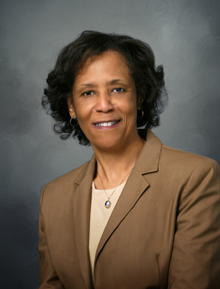A draft of ILA’s eagerly awaited Standards for the Preparation of Literacy Professionals 2017 (Standards 2017) will be available for public comment from April 17 to May 8. In the weeks leading up to the public comment period, we’ll take a look at the significant changes proposed in Standards 2017, which will be submitted for Council for the Accreditation of Educator Preparation (CAEP) approval in fall 2017 and published in early 2018. Once approved by CAEP, ILA’s new set of seven standards will become the ruler by which preparation programs for literacy professionals, specifically reading/literacy specialists, are measured.
When writers sat down to address Standard 4, they had quite a task ahead of them. The idea of “diversity” has exploded since 2010 and, more than that, the team expanded the standard to address Diversity and Equity.
 |
| Doris Walker-Dalhouse |
“We were really looking at a broadened definition of diversity and including many more elements and aspects of diversity,” said Doris Walker-Dalhouse, lead writer on Standard 4 and a professor in the College of Education at Marquette University in Milwaukee, WI. “We wanted to recognize religious, cultural, and gender expression and identity in addition to differences in physical and cognitive abilities.”
As for adding the second aspect of the Standard, Walker-Dalhouse said, “The equity and advocacy for equity is a stronger focus with the new standards because of increasing diversity in schools.
“It’s about being inclusive, wanting all students to be academically and socially capable of interacting with others to create a more socially just world,” she said. “We need to make sure all students have the kind of learning experiences they need to contribute to and succeed in this type of world.”
She said educators need to look at students’ families and their communities as resources and strive to make connection between students’ in-school and out-of-school literacies and learning. Each community and schools within these communities face different challenges in achieving equity, whether in funding, resources, and/or policies that negatively impact a high number of English learners, children in poverty, children with diverse family structures, or children with other aspects of diversity. This mindfulness will help educators be advocates for their students and for what they need.
“Students come from different home environments, have different funds of knowledge that should be tapped and incorporated into the methods and materials used to promote their learning,” Walker-Dalhouse said. “Educators who strive to be responsive to diverse students seek greater understanding of diversity through professional reading, reflection, and actions in creating learning environments that engage all students. They examine their personal attitudes and beliefs about diverse students and promote critical thinking about the impact of injustices and stereotypic thinking in their work with students. Most important, they take appropriate action(s) to effect change.”
The writing team for Standard 4 was
- Lori Helman, associate professor, University of Minnesota
- Liliana Reyes, professor of Early Childhood Literacy Education, Language, Reading, & Culture, University of Arizona
- Autumn Dodge, assistant professor, St. John’s University, Queens, NY
Remember to review the entire
Standards 2017 when it is posted for open public comment on April 17 and be sure to make your voice heard.
 April Hall was editor of Literacy Daily. A journalist for more than 20 years, she has specialized in education, writing, and editing for newspapers, websites, and magazines.
April Hall was editor of Literacy Daily. A journalist for more than 20 years, she has specialized in education, writing, and editing for newspapers, websites, and magazines.